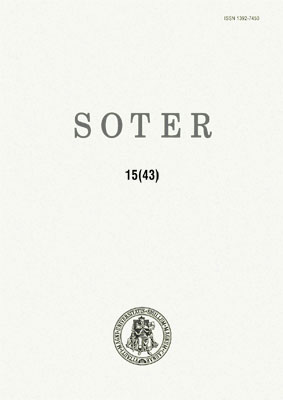Viltis – laisvės ženklas. Hermeneutinės fenomenologijos įnašas
The Hope as a Sign of Freedom. Contribution of Hermeneutical Phenomenology
Author(s): Elena BūgaitėSubject(s): Christian Theology and Religion
Published by: Vytauto Didžiojo Universitetas
Keywords: asmuo; laisvė; viltis; laikas; transcendencija; prasmės horizontas; person; freedom; hope; time; transcendence; horizon of sense
Summary/Abstract: Straipsnio tikslas – gilintis į vilties bei laisvės ryšį. Tinkamiausias metodas – hermeneutika, nes ji yra atvira laiko ženklams ir konkrečiam asmeniui, nuolat esančiam kelyje. Nes interpretavimas – tai laikysena kūrinio ne objekto atžvilgiu, Kūrėjo ne daikto akivaizdoje. Todėl prasmė nėra daiktiškai turima, ji veikiau yra nuolatinė nuoroda. Žymus šiuolaikinis mąstytojas Paulas Ricoeuras įvardija: „Viliuosi būti tiesoje“. Juk nuostaba yra galima, nes pasaulis yra Transcendencijos analogija, tuo tarpu viltis yra būtina, nes pasaulis yra visai kas kita negu Transcendencija. Ch. Péguy himnas vilčiai Portikas (1929) ištryško iš giliausios nevilties. Tarp dviejų didelių savo sesių – tikėjimo ir meilės – viltis yra mažoji, bet patraukianti visus. Tai viltis, nustebinanti ir Dievą. Viltis yra laukimas ir ištikimybė: laukimas to, kas mums nepavaldu; ištikimybė, nes pažadas jau slypi mūsų veiksmo ir minties gelmėje. Viltis leidžia priimti tai, kas nepriklauso vien nuo mūsų; ji atveria galutinės tikrovės kitokiškumui, kuris jau patiriamas mūsų konkrečioje kasdienybėje. The aim of this article is to inquire the hope. First of all the hermeneutics may be applied as a suitable method, because it is based on the experience of time and on human person as always in the way. Ricoeur gives us a good example of a dialogue with different methods (structuralism, psicoanalysis, phenomenology, analytical philosophy). The hermeneutics is always open to the signs of time and to the person. Ricoeur accepts postkantian perspective: the experience of limits (Kant proposes with the definition of limits rather an idea of „openness”, of „transcendence”), and he takes from Hegel the paradigm of mediation. Ricoeur maintains the Decartian tradition, of subject, but not according false pride, but „broken cogito”, that has to make questions about his own identity. The wonder is possible because the world is an analogy of Transcendence, but the hope is necessary, because the world is quite a different thing than Transcendence.
Journal: SOTER: religijos mokslo žurnalas
- Issue Year: 43/2005
- Issue No: 15
- Page Range: 191-201
- Page Count: 11
- Language: Lithuanian

